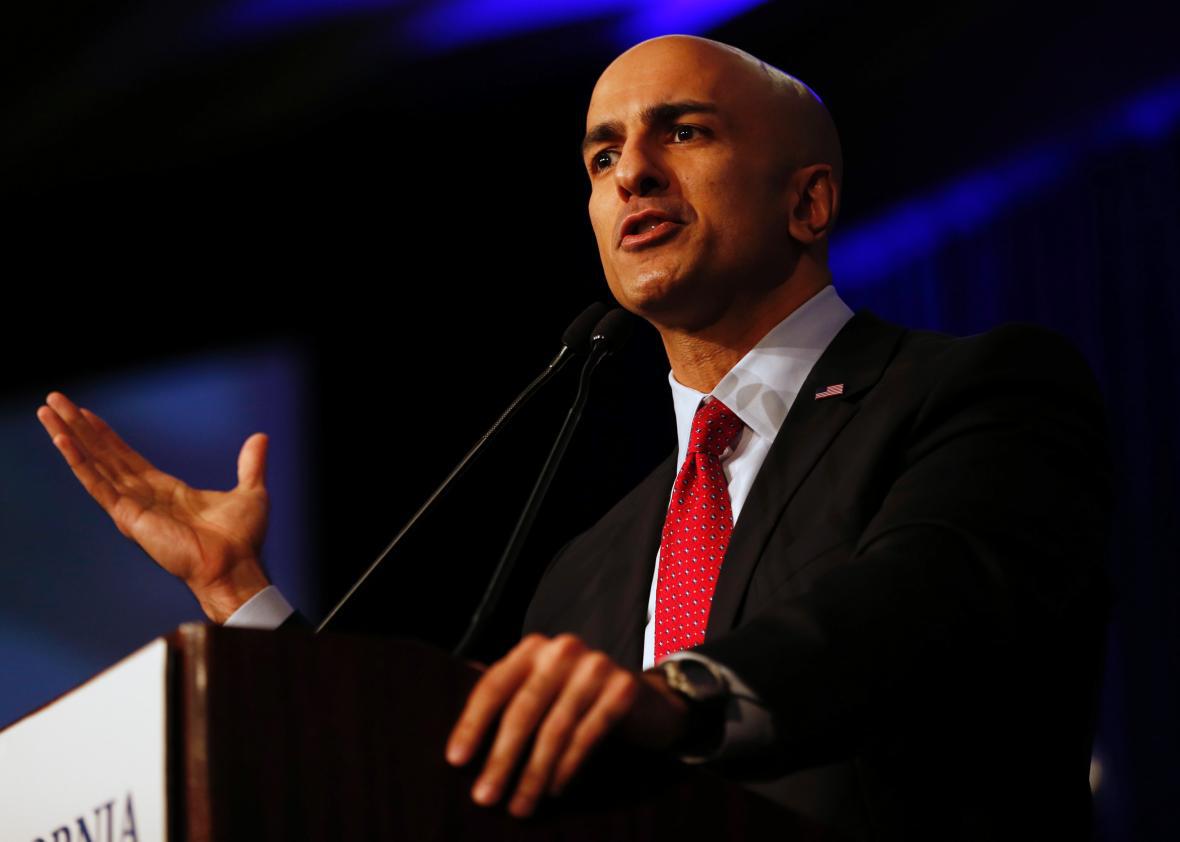Before Neel Kashkari took office as president of the Federal Reserve Bank of Minneapolis last month, he was largely known as Washington’s former bank bailout czar, the point man charged with overseeing the Troubled Asset Relief Program during the financial crisis. “I helped design TARP. I ran TARP under two presidents,” the Republican ex–Goldman Sachs banker later told reporters, at the start of his incredibly quixotic run for governor in California. “I own TARP.”
Suffice it to say, this is not the résumé of a typical anti–Wall Street firebrand. And so the finance world was a bit shocked Tuesday when Kashkari, in his first public speech as a Fed president, suggested that large banks were still too big to fail, and that it might be time to break them up. He compared the financial system to a nuclear reactor that needed to be kept from melting down and argued that while regulators may be prepared to handle the failure of a single large bank during a healthy economy, he was “far more skeptical” they could cope with multiple failures amid another full-blown crisis.
He continued:
I believe we must begin this work now and give serious consideration to a range of options, including the following:
- Breaking up large banks into smaller, less connected, less important entities.
- Turning large banks into public utilities by forcing them to hold so much capital that they virtually can’t fail (with regulation akin to that of a nuclear power plant).
- Taxing leverage throughout the financial system to reduce systemic risks wherever they lie.
Any one of these would be a dramatic step compared with the current regulatory regime. Not surprisingly, Bernie Sanders quickly shot out a press release expressing his delight.
Kashkari is not the first Fed president to call for slimming down large banks. Richard Fisher, former head of the Dallas Fed, did so in 2012, and obviously not much came of it. Meanwhile, as the Wall Street Journal notes, Kashkari’s comments clash with Fed Chair Janet Yellen’s position that regulators already have the tools they need—which suggests he’ll run into plenty of opposition from his new central bank colleagues.
Still, I think Kashkari is going to be fascinating to watch. We now have a former politician with establishment credentials who has ascended to a somewhat influential position within the Federal Reserve basically running a campaign to chop banks down to size—or at least make them dull, safe, and certainly less profitable. He plans to run a series of symposia on the issue, and is soliciting suggestions from the public on how to end the problem of too big to fail, which is something you’d expect from a Senate candidate, not a central banker. Will it have any effect? Who knows. But the politics of financial regulation are certainly getting weirder and more interesting.
